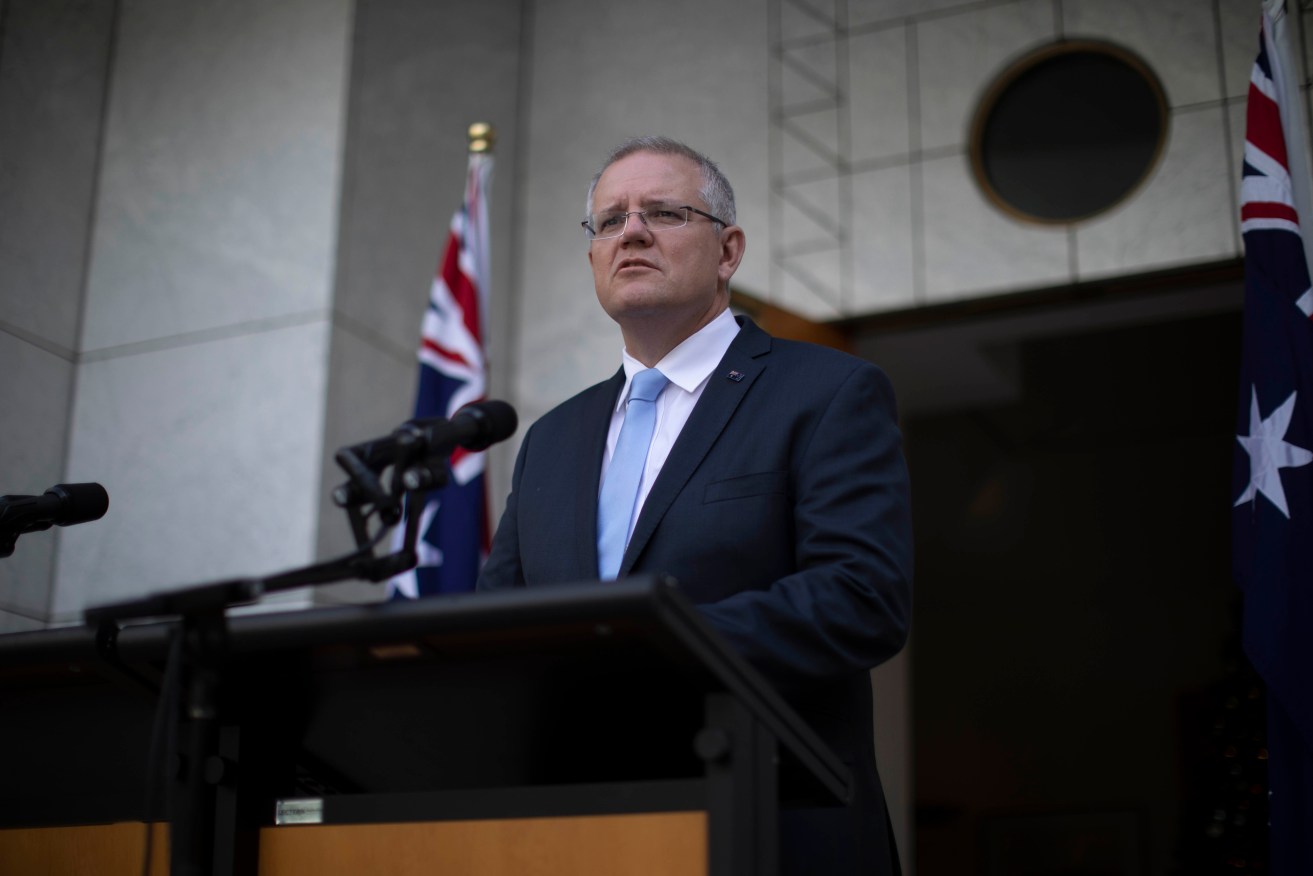Lawyers flag fears on “irredeemable” citizenship laws
Australian lawyers are afraid petty criminals and people participating in religious festivals could be rendered stateless under citizenship law changes aimed at homegrown terrorists.

Legal experts have slammed the Morrison Government's proposed changes to citizenship laws. Photo: AAP/Sean Davey
Constitutional and human rights experts have also expressed grave concerns about the “irredeemable” Bill being put forward by the Federal Government.
The Morrison government wants to be able to deport Australian-born extremists who are entitled to citizenship in another country.
But the Law Council of Australia fears the proposed powers would be disproportionately harsh and could breach international law.
Dual nationals sentenced to at least six years jail for terror offences can already be stripped of their Australian citizenship.
The Coalition wants to scrap the six-year threshold and expand the range of offences it can rely upon.
The Law Council’s Dr David Neal is urging the federal parliamentary intelligence committee to keep the existing triggers in place.
“Low-level offending, which is dealt with to finality in a local court, could be captured by laws that lead to citizenship cessation,” he told committee members in Canberra today.
Neal is also concerned the offence of “associating with a terrorist organisation” could capture people participating in legitimate social gatherings and religious festivals.
Constitutional expert Professor George Williams believes tinkering with the Bill could also capture religious pilgrims and business people who venture into politically-sensitive areas.
“There is no actual involvement in terrorism, there is no suggestion of disloyalty, but that would trigger under this legislation the possibility of revocation,” he told the committee.
Williams said the Bill would have a range of “extreme and unjustified” consequences and could make the community less safe.
“In fact, it may do some harm, particularly in the broader agenda of building social cohesion.”
The laws would also significantly lower the threshold around proving a person’s citizenship of another country.
Under the changes, the minister would only need to be “reasonably satisfied” a person may be entitled to citizenship elsewhere.
“As recent history demonstrates – in both the cases of members of parliament and the (Neil) Prakash case – determining existing foreign citizenship can be difficult,” Neal said.
“Determinations based on predictions about future foreign citizenship – which may include decisions by foreign governments – are obviously fraught.”
The Morrison government sparked a diplomatic fight with Fiji over the summer break after stripping Prakash of his Australian citizenship.
The Islamic terrorist was born in Melbourne to a Fijian father but Fiji says he is not a citizen.
The Federal Government has indicated dual nationals who are stripped of their citizenship could languish indefinitely in immigration detention if other countries refuse to take them.
– AAP




